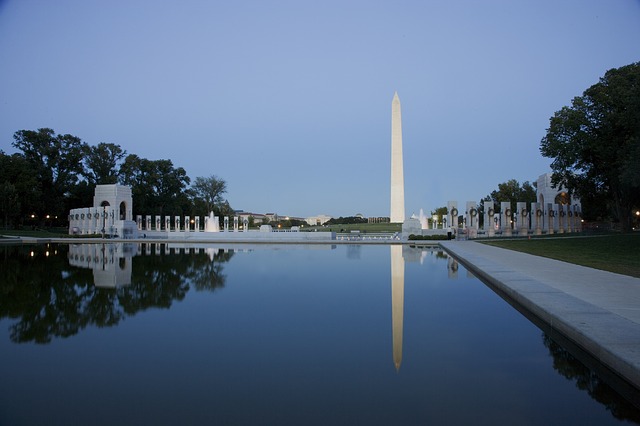 The election is over. Now what? In this series, I use Romans 12 to frame reflections of this presidential campaign and hopefully encourage us to live faithfully as we return to the “ordinary time” of the American political calendar. See Part 1 and Part 2 here. Editor’s note: For previous statistical analysis and nonpartisan political reflection from Josh’s expertise, see this link.
The election is over. Now what? In this series, I use Romans 12 to frame reflections of this presidential campaign and hopefully encourage us to live faithfully as we return to the “ordinary time” of the American political calendar. See Part 1 and Part 2 here. Editor’s note: For previous statistical analysis and nonpartisan political reflection from Josh’s expertise, see this link.
Before the election, we were already living in a partisan and divided country. Republicans and Democrats not only disagreed about policies, but many also doubted the good intentions of partisan opponents. According to the Pew Research Center, partisanship in politics is more divisive than any other social, economic, or demographic belonging in America today. A majority of Americans have negative views of partisans from the opposite party, revealing the animus that animates partisanship. After the election, partisanship has only increased. In 2013, 81% of Americans report significant conflict between Republicans and Democrats. That has only increased this election cycle as more Americans (85%) now believe there is significant conflict between Republicans and Democrats.
Amidst increasing partisanship, how can the Church present an alternative vision and embody a much needed example of unity in Christ? In Romans 12:9-13, the apostle Paul describes how the body of Christ can live out love for each other that is genuine, sincere, and active.
Romans 12:9-10 Let love be genuine. Abhor what is evil; hold fast to what is good. Love one another with brotherly affection. Outdo one another in showing honor
Partisanship can lead to social fragmention and segregation where we self-select into communities of like-minded individuals. We unfriend or unfollow people whose political opinions we disagree with, choosing to consume news and opinions from friendly voices.
Paul presents a different vision. He calls us to love one another, to “be devoted to one another with authentic brotherly affection as members of one family” (Amplified translation). Our shared unity in Christ must supersede our individual political affiliations and ideologies. There is no politics litmus test that could disqualify people from membership in the Church. Instead, we are to honor our fellow brothers and sisters in Christ, even those whose social and political views we profoundly disagree with. Having all received undeserved grace that binds us together as fellow brothers and sisters in Christ, let us not withdraw from but be devoted to each other. Let us disagree without being disagreeable, listen without judgment, and love without pretense.
To do so, we must re-prioritize the things that we hold dear. During an election season, politics can become all-consuming. It is easy to view everything through partisan lenses. We may even allow the pursuit of good political objectives to become our ultimate good. However, we should not affix our gaze on politics nor let our moods be so intertwined with electoral outcomes as to forget our prime call to live as Christ followers.
Romans 12:11-13 Do not be slothful in zeal, be fervent in spirit, serve the Lord. Rejoice in hope, be patient in tribulation, be constant in prayer. Contribute to the needs of the saints and seek to show hospitality
Paul reminds us that our ultimate zeal and passion must be to serve the Lord. While that can and should include participation in social and political spheres, these cannot be the totality of the expression of faith. Let us therefore turn our eyes and ears away from the frenzy of our 24-7 political news cycles. Let us renew our affections, attention, and energies to seek, understand, and serve the Lord. Let us devote the efforts we so willingly spend to advocate our political agendas for the advancement of the Kingdom. Let us not just seek worldly knowledge but in prayer, seek true wisdom, insight, and strength from God.
There have been and will continue to be genuine disagreements about politics between Christians. But we can show that we are Christians first and partisans second by being hospitable to each other. Let us not withdraw from our diverse communities into homogenous hamlets. But let us be devoted to meeting the needs of those around us, despite their politics, with kindness and hospitality. No amount of political disagreement should prevent us from fellowshipping with and praying for our fellow brothers and sisters across the political spectrum.
Partisanship is a real and a divisive force in America today. As the body of Christ, let us not be resigned to the encroaching effects of partisanship on the Church. Instead, let us love each other as a family and serve God together to embody the hope, community, and true unity that is found in the redemptive shadow of the Cross.
Joshua Su-Ya Wu is a husband, father, pastor’s kid, and social scientist seeking to faithfully reflect Christ in all aspects of his life. He has a doctorate in Political Science from The Ohio State University, works in analytics and data science, and writes about data analytics at Reasonable Research and the intersection of faith and culture at Stuff I Didn’t Learn in Church. He currently lives in Rochester New York with his wife and two kids, and can be reached on Linkedin or on Facebook

Hi Joshua,
I saw this book today on the new books shelves at the Cambridge University Press bookstore, and thought it might speak to some of the concerns you’ve discussed around political partisanship:
Kevin Arceneaux and Ryan J. Vander Wielen, Taming Intuition: How Reflection Minimizes Partisan Reasoning and Promotes Democratic Accountability (Cambridge University Press, 2017)
http://www.cambridge.org/us/academic/subjects/politics-international-relations/american-government-politics-and-policy/taming-intuition-how-reflection-minimizes-partisan-reasoning-and-promotes-democratic-accountability
Hi David, thanks for the cite. Haven’t seen it, but will check it out!